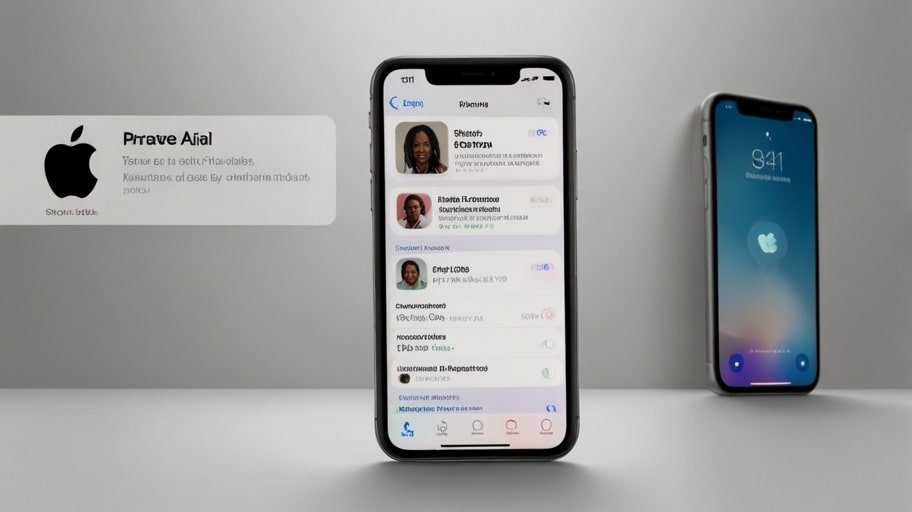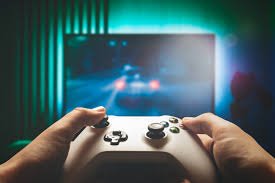Tim Cook’s PrivateAI Vision Transforms iPhone Data Privacy

Apple’s newest product has caught everyone’s attention in the tech industry. At an important keynote in Cupertino, Tim Cook revealed a state-of-the-art iPhone AI system built to process your data internally and keep it safe. It brings a new definition of smartphone security.
In Apple apps, the PrivateAI system applies Apple’s neural engine to implement advanced AI features without sending the data to the cloud. It can handle not only voice commands but also photo analysis without sending the data online. Cook elaborated that good security measures are essential as cyber threats have become common.
Major tech companies have been troubled by privacy concerns. Recent hacks exposed millions of online users’ information, which has caused many to mistrust the platforms. To solve this problem, Apple provides helpful AI features that can translate everything in real time and make personal suggestions confidentially on the user’s device without sharing data with anyone else.
The news was released because Apple felt it must compete with others in the AI field. Google and OpenAI are using cloud AI, but Apple chooses to keep its AI on-device instead. It is risky to suggest that privacy could be the primary motivation behind people’s next smartphone purchase.
PrivateAI links up well with iOS. It lets Siri process questions and make plans even when connected to the internet is not possible. It helps improve photo apps too, enabling them to identify faces and things locally, so your family memories are kept private as new technology is used.
The features include more than just iPhones. Apple hopes to use PrivateAI technology on both iPads and MacBooks, forming an environment where your personal information stays on your device. Because of this, privacy may become a priority in designing new technology instead of being left as an afterthought.
Cook’s talk specified the real advantages of cloud computing. Think about writing secret emails or studying financial numbers without any cloud exposure. Unlike other companies that process data on their servers, your data with PrivateAI remains shielded because even Apple cannot access it due to encryption.
This system works very smoothly. Thanks to its optimized silicon from Apple, tasks that involve AI do not drain the battery as much as they would normally. Initially, PrivateAI completed difficult computations much faster than its cloud-based competitors.
Some people doubt the technology’s ability to reach mass audiences. Is on-device AI able to perform tasks such as analyzing many pieces of data as well as cloud systems? Apple points out that PrivateAI is mainly meant for everyday needs. If you want, you can switch on cloud assistance for tougher tasks, but it is still secured by end-to-end encryption.
The decision will affect many companies in the industry. Because Apple is focusing on the removal of privacy issues, other companies may be pushed to adopt similar policies. PrivateAI could result in preferring decentralized AI over using the fragile infrastructure of the cloud and would allow individuals to use it without relying on others.
People’s confidence in businesses is being questioned. A large majority of people using smartphones are very concerned about privacy. Apple’s opposition to giving law enforcement access to iPhones shows that its privacy policies are trustworthy. By this means, PrivateAI positions Apple as being ahead of other tech companies in ensuring users’ privacy.
The new system excites all those involved with development. Because of Apple’s new framework, third-party apps can access the tools offered by PrivateAI. As a result, your chosen note-taking and fitness apps may have more comfortable features and better protection because all your data stays private on your phone.
Implementing the changes presents obstacles. Because PrivateAI needs strong hardware to run on devices, some of its abilities may be available only on newer iPhones. iOS updates from Apple are meant to bring main features to older devices so that more people can use them.
The market reacted strongly and positively. After the keynote speech, Apple’s shares rose by 4%, demonstrating investors’ trust in what PrivateAI could bring. Experts believe the new features could lead to the highest iPhone sales because people concerned about threats to their data may switch to Apple.
This is not the company’s first effort on privacy. The App Tracking Transparency feature limits data collection. The company goes further by making privacy an essential part of AI creation. The challenge comes directly to competitors who profit from sharing user data with AI platforms.
Criminal actions worldwide have major impacts. As a result, Apple might benefit from being ahead of competitors in the EU with private AI solutions. The regulators’ approval of Apple’s compliance with GDPR may aid the company in growing internationally since other companies are still facing suspicion.
The way the environment is dealt with is worth mentioning. Computing on iPads and computers lessens the need for cloud servers, which is good for the environment. By eliminating much of the need for data centers, PrivateAI allows for creating sustainable tech that interests people who want to support eco-friendly solutions.
Cook wanted PrivateAI to be seen as a necessary action in terms of ethics. Since data has become very valuable, Apple’s choice not to exchange it highlights a different approach. The business guesses that users who care about strong AI and better privacy will want to choose Apple and its phones.
At springtime next year, iOS 19 will begin to be deployed to devices. Users who tested Siri reported that she smoothly carried out tasks despite not needing the internet. If the company pulls it off, PrivateAI might become the start of real privacy in today’s technology.
This brings a major change in the field. Since AI is expanding everywhere, Apple’s focus on privacy could significantly change the industry. Those wanting to avoid data leaks and tracking find PrivateAI’s idea quite appealing: safe and intelligent use of smartphones.



